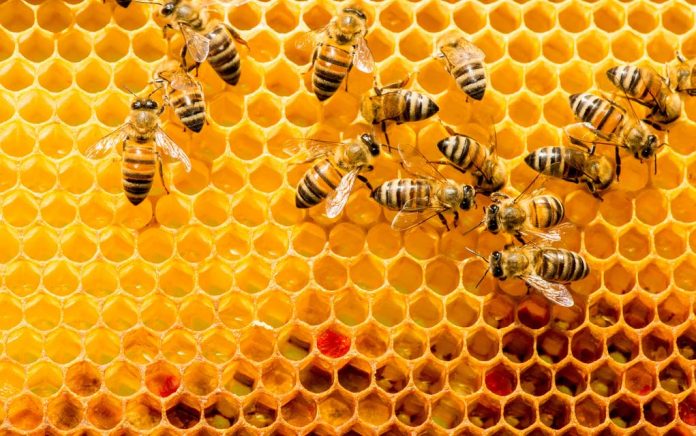
Mother Nature is brilliant in her capacity to create natural healing opportunities. One such way is the ever-important bee and its beautiful by-products: bee pollen and royal jelly.
Bee Pollen Facts
The title of “worker bee” is appropriately termed given the lengths to which bee pollen is produced. It takes one bee approximately 240 hours of work to produce 6 grams of bee pollen. Young bees use this for nourishment, and it is full of nutrients required for humans-not the least of which is protein, lecithin, live enzymes, folic acid, vitamins, and trace minerals. Half of the protein found in bee pollen is even in its free amino acids form, meaning it is very bio-available.
Royal Jelly Facts
Royal jelly transforms a female worker bee into a Queen Bee. It is her main source of sustenance. In fact, for the first two days after the female hatches, royal jelly is all she is fed. On the third day, the other females are fed honey and pollen while the queen’s food continues to be royal jelly. It is created when a nurse bee combines masticated pollen with its own glandular secretions. The result is a vitalizing tonic that extends the Queen Bee’s life by at least twenty times the average bee.
Bee Pollen and Royal Jelly Health Benefits
While both bee pollen and royal jelly have similar healing and nutritional properties, royal jelly tends to have more potent effects because it has a higher concentration of nutrients. As a result of its high enzymatic count (believed to contain nearly 5000 live enzymes), bee pollen helps with various digestive disorders by healing and regulating the intestinal flora. Also, neither has a mucosal residue, so the body can assimilate and benefit from its high nutrient content.
Read more about healthy digestion
In addition to trace minerals, both of these foods also contain concentrated amounts of vitamins and bioflavonoids, and they are comparable to cereal grasses, such as wheat and barley grass, as well as spirulina, which are very high in chlorophyll. This is not so surprising when the source (most things “green” in nature, from trees, bushes, and flowers) is taken into consideration.
Bee pollen and royal jelly are:
- Anti-aging
- Anti-radiation
- Anti-biotic
- Digestive tonics
They can:
- Alleviate menses pain
- Increase fertility (especially royal jelly-the Queen Bee can lay up to 2000 eggs per day because of her optimally developed spermatheca and ovaries)
- Alleviate seasonal allergies (using local, pesticide-free bee pollen, and only under the supervision of a health care practitioner)
- Increase endurance and longevity
- Improve vitality
- Alleviate asthma
- Reduce cravings
- Regulate blood-sugar levels
- Increase hemoglobin count in anemic individuals
- Assist in weight loss (because of lecithin)
Read more about seasonal allergies
How to Use Bee Pollen and Royal Jelly
Bee pollen can be purchased as granules or powder form and can be thrown into smoothies, salads, yogurt or a favorite cold or room temperature beverage-but never hot drinks, like tea. It is important that bee pollen is never heated, as this destroys its potent enzymatic properties. Fresh is best, and sometimes packages of bee pollen granules list the packaged date rather than the best before date. They should be kept in the freezer or fridge but preferably the freezer, and because they don’t freeze, they can be used straight from freezer.
Royal jelly is stored in the refrigerator or freezer. To assist with the somewhat bitter taste, add to honey or smoothies.
Raw, unprocessed honey contains bee pollen, too. Farmers markets are the best bet for fresh, local sources. There are farmers who will sometimes add bee pollen or royal jelly into their honey because of their health benefits.
Bottom Line
There is no question as to how important bees are to the survival of humanity. Through pollination they keep innumerable plant species alive. Equally important are the healing properties these majestic creatures offer humans through their existence. Getting honey and these by-products from local sources, and from farmers who are ethical in their practices, are key to their preservation.
Read about ways your skin, hair and nails can benefit from honey
References
Elson M. Haas, MD, Buck Levin, PhD, RD. Staying Healthy with Nutrition-21st Century Edition. Celestial Arts, 2006.Paul Pitchford. Healing with Whole Foods-3rd Edition. North Atlantic Books, 2002. http://www.ncbi.nlm.nih.gov/pmc/articles/PMC3153499/http://www.ncbi.nlm.nih.gov/pmc/articles/PMC1265395/?page=1http://www.mercola.com/article/diet/bee_pollen.htm










